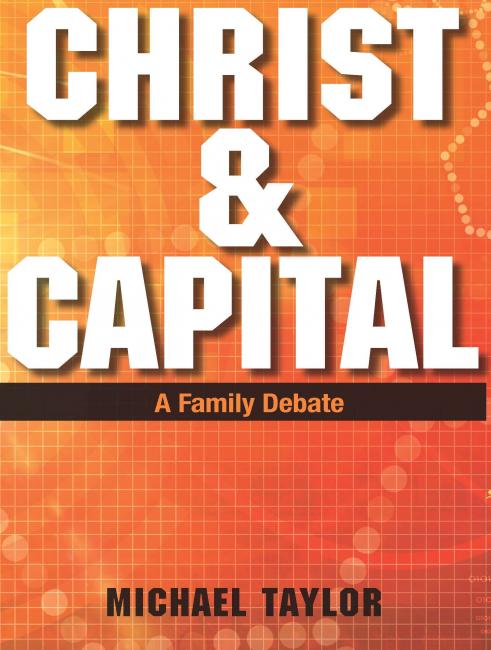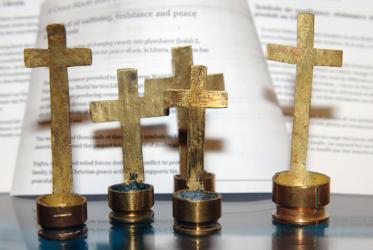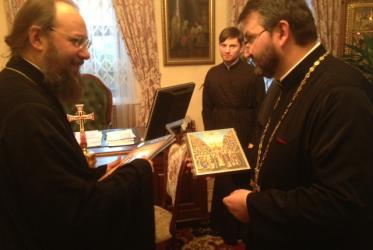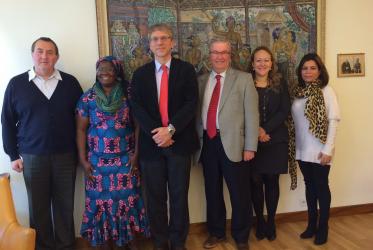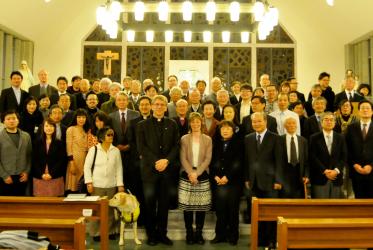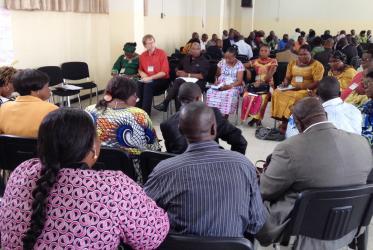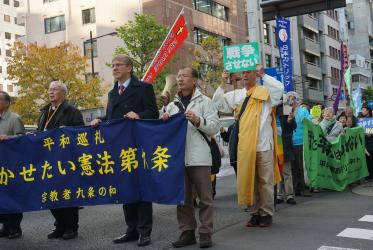Displaying 6781 - 6800 of 9680
Christ & Capital
01 January 2015
The new Arms Trade Treaty: a life-saving gift this Christmas
19 December 2014
WCC welcomes Cuba-US reconciliation
18 December 2014
WCC extends sympathies to Peshawar victims
17 December 2014
WCC works with Ukrainian churches for peace
17 December 2014
Leaders envision stronger youth engagement
17 December 2014
Momentum builds for ban on nuclear weapons
16 December 2014
Advent protests in New York City
16 December 2014
Churches in Japan are witnesses of justice and peace
12 December 2014
Water network develops a theological framework for water justice
12 December 2014
WCC member churches commit to climate justice at COP 20
10 December 2014
WCC launches global ecumenical network for advocacy for just peace
09 December 2014

